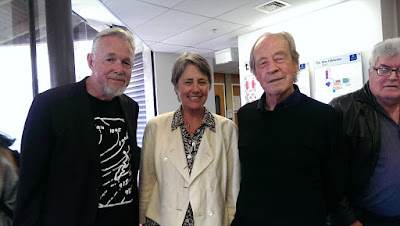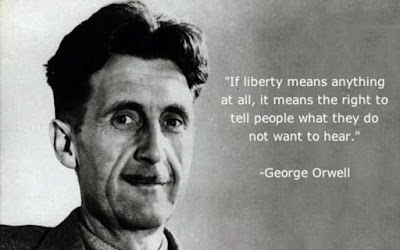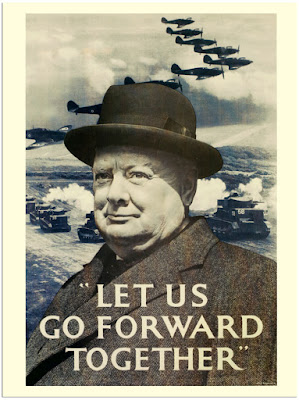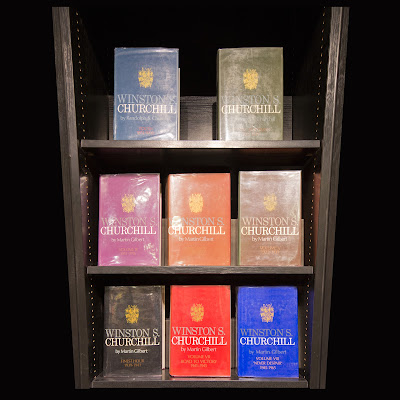
Allen Curnow: Collected Poems (2017)
A Symposium on the Life and Works of
Allen Curnow
30 September 2017
University of Auckland, Arts 1: Room 220
9.30 – 10.45
Panel One: Remembering Allen Curnow (I).
Chair, Alex Calder
- C. K. Stead: ‘AC: informal recollections’
- Elizabeth Smither: ‘Allen & Jeny: a tribute’
- Wystan Curnow: ‘Venice’
10.45 - 11.00: Morning tea
11.00 - 12.35
Panel two: New Zealand Perspectives
Chair, Tom Bishop
- Hugh Roberts: Unsettler Poetry: Curnow’s Literary Nationalism Revisited
- John Newton, ‘All the History that Did Not Happen’
- Paul Millar: Curnow and Pearson
- Philip Steer: Curnow and Environmentalism
12.35 - 1.15 Lunch
1.15 – 2.50
Panel three: Poetry and Poetics
Chair, Erin Carlson
- Roger Horrocks: ‘Trying to save poetry from poetry’
- Dougal McNeill: ‘Abominable Tempers, Magic Makers: Allen Curnow, Earle Birney and Mid-Century Modernism’
- Harry Ricketts: ‘Allen Curnow: A post-Christian Poet’
- John Geraets: ‘Show and Tell: Curnow’s Stealth’
Afternoon tea: 2.50 – 3.10
3.10 - 4.25
Panel four: Early days, Latter days.
Chair, Alex Calder
- Mark Houlahan: Curnow at Sonnets
- Peter Simpson: 'Contraries in two late Curnow poems: “A Busy Port” and “Looking West, Late Afternoon, Low Water”’.
- Jack Ross: ‘Teaching Late Curnow’.
Short break
4.30 – 5.45
Panel five: Remembering Allen Curnow (II)
Chair, Alex Calder
- Michael Hulse: ‘That can’t be it!’
- Jan Kemp: Poems for Allen Curnow
So guess where I was yesterday ... One always approaches these events with a certain trepidation, I fear. I think you'll agree that the above list represents a pretty packed programme, but - as the prime mover of the whole affair, Alex Calder, remarked at the end - all the presenters "brought their A-game," and there was really never a dull moment in the whole day (not to mention an excellent lunch, which is more important than one might think for morale on such occasions).
There were numerous biographical revelations: Curnow's defiant contempt for homophobia, marching down Princes Street arm in arm with his theatre producer, who'd just been convicted of 'lewd acts,' in full sight of Auckland University's powers-that-were, was a particular high point (thanks for that detail, Paul Millar); and many of C. K. Stead's points about the 'authorised' nature of the biography were also shrewd and to-the-point. Michael Hulse, Jan Kemp and Elizabeth Smither contributed fascinating accounts of their very different friendships with both Allen and Jeny Curnow.
The Academic papers were uniformly excellent. I particularly enjoyed the focus on his earlier work provided by Hugh Roberts, John Newton, Dougal McNeill and Mark Houlahan. At times they overlapped, at other times disagreed, but the combined picture they presented certainly helped me to understand a lot of aspects of his poetry which had hitherto been quite opaque to me.
It's the later poetry, from the 1970s onwards, for which I myself feel a real enthusiasm (as I hope I revealed in my own paper on my strategies for teaching some of these poems to local students). Even here, though, there was much to learn. Roger Horrocks' ringing defence of the first book Curnow published after his long silence throughout the 1960s, Tree, Effigies, Moving Objects (1972), from the various accusations of 'roughness' and 'excessive obscurity' which bedevilled it at the time, was very persuasive, and Peter Simpson's analysis of two of these later poems both informative and charming. It tied in very well with Wystan Curnow's account of his father's long love affair with Italy, and - in particular - la città del sogno [dream city] itself, Venice, which Wystan interestingly contrasted with the Lyttelton of his childhood.
What else? My Massey Palmerston North colleague Philip Steer had many interesting things to say about the environmental concerns of the 1930s, and the ways in which they manifest in Curnow's early poetry; Harry Ricketts analysed the 'coldness' many have claimed to detect in Curnow's 'post-Christian' poetry - which (I guess) places it alongside the work of such precursors as Eliot and Montale, as well as the more overtly present Wallace Stevens. John Geraets contributed a condensed overview of his thinking about Curnow over the years, grouped around certain predominant themes.
There were some other voices I would have liked to hear. I would have liked Elizabeth Caffin and Linda Cassells to talk some more about their work on (respectively) the new collected poems and the biography. But since I was unfortunately unable to attend the booklaunch on Friday night, I suspect that they may have already discussed the subject there. It would have been interesting to hear some more details about it, though.
All in all, it was a great day out, and a very fitting tribute to one of our most important and (I suspect) enduring poets.
Another important presence there (albeit in absentia) was that of the late Professor Terry Sturm, whom I knew pretty well when I used to work in the English Department. He was a very kind as well as a very brilliant man, and I have nothing but good memories of him (including a rather surprising speech in the Senior Common Room one day, after probably all of us had had a bit too much to drink, on the improbability of some of the more surprising claims made routinely in Penthouse forum ...). He was a good boss and a straight-shooting talker. I greatly enjoyed reading his biography of pioneering novelist Edith Lyttleton, and anticipate the same enjoyment from his work on Allen Curnow.
from A Small Room with Large Windows (1957)
Comfortable
To creak in tune, comfortable to damn
Slime-suckled mangrove for its muddy truckling
With time and tide, knotted to the vein it leeches.
- Allen Curnow
New Zealand is a very small country, still. It's strange how many connections you can find with people you hardly know at all (except by reputation). Does it matter? I guess not really. It's fun to table a few of them, though:
My father told me that as kids they stayed in a boarding house in Akaroa where the Curnow family were also guests. They didn't much take to Allen, he said, but they had a great time playing with his brother Tony (this must have been sometime in the late 20s, I imagine, when my grandfather was working as a teacher in Templeton, on the outskirts of Christchurch).
Then my English teacher at Rangitoto College, Mr. Lamb, had many reminiscences of Allen Curnow as a lecturer. He retired from Auckland University a few years before I got there, though. In fact the only time I ever spoke to him was one day in (I think) 1986, when I was in the English Department mailroom and he asked me for help with the fax machine. I had to admit that it was a mystery to me, too, so there went my chance of making a good impression.
The next time I remember seeing him was at a poetry booklaunch in the late 1990s, where my friend Leicester Kyle finally gave into our persuasions that he go over and speak to the great man. Leicester's father, Cecil, who also had poetic ambitions, had been a fellow reporter of Curnow's on the Press in Christchurch in the 1930s, and they had some nice chat about it. There was a suggestion that Allen might write a preface to a collection of Leicester's own poems, but nothing ever came of that.
Connections: I know that Shoal Bay seascape of "A Small Room with Large Windows" very well. My grandmother lived in Ngataringa Bay, just around the headland, and we grew up sailing around on boats and wading over the mudflats. I don't know the West Coast beaches nearly as intimately as Curnow did, mind you. Of course I've been to Karekare many times, but have only stayed overnight there once. Muriwai is my favourite of those wonderfully evocative beaches, perhaps because it's really just round the corner from Mairangi Bay.
from A Dead Lamb (1972)
Never turn your back on the sea.
The mumble of the fall of time is continuous.
A billion billion broken waves deliver
a coloured glass globe at your feet, intact.
You say it is a Japanese fisherman's float.
It is a Japanese fisherman's float.
- Allen Curnow
Poetry:
- Valley of Decision: Poems. Auckland: Auckland University College Students' Association, 1933.
- Enemies: Poems 1934-36. Christchurch: Caxton Press,1937.
- Not in Narrow Seas: Poems with Prose. Christchurch: Caxton Press, 1939.
- Island and Time. Christchurch: Caxton Press, 1941
- Sailing or Drowning: Poems. Wellington: Progressive Publishing Society, [1946?]
- Jack Without Magic: Poems. Christchurch: Caxton Press, 1946.
- At Dead Low Water, and Sonnets. Christchurch: Caxton Press, 1949.
- Poems 1949-57. Wellington: Mermaid Press, 1957.
- A Small Room With Large Windows. London: Oxford University Press, 1962.
- Trees, Effigies, Moving Objects: A Sequence. Wellington: Catspaw Press, 1972.
- An Abominable Temper, and Other Poems. Wellington: Catspaw Press, 1973.
- Collected Poems 1933-1973. Wellington: A.W. and A.H. Reed, 1974.
- An Incorrigible Music. Dunedin: Auckland University Press, 1979.
- Selected Poems. Auckland: Penguin, 1982.
- You Will Know When You Get There: Poems 1979. Auckland: Auckland University Press, 1982.
- The Loop in Lone Kauri Road. Auckland: Auckland University Press, 1986.
- Continuum: New and Later Poems 1972-1988. Auckland: Auckland University Press, 1988.
- Selected Poems 1940-1989. London: Viking, 1990.
- Early Days Yet: New and Collected Poems 1941-1997. Auckland: Auckland University Press, 1997.
- The Bells of Saint Babel’s. Auckland: Auckland University Press, 2001.
- Sturm, Terry, ed. Whim Wham’s New Zealand: The Best of Whim Wham, 1937-1988. A Vintage Book. Auckland: Random House New Zealand, 2005.
- Collected Poems. Ed. Elizabeth Caffin & Terry Sturm. Auckland: Auckland University Press, 2017.
- [Appendix to Allen Curnow: Collected Poems. Ed. Elizabeth Caffin & Terry Sturm. Auckland: Auckland University Press, 2017. Available at: http://www.press.auckland.ac.nz/en/curnow-collected-appendix.html].
Plays:
- The Axe: a Verse Tragedy. Christchurch: Caxton Press, 1949.
- Four Plays: The Axe, The Overseas Expert, The Duke’s Miracle, Resident of Nowhere. Wellington: A.W. and A.H. Reed, 1972.
Prose:
- Look Back Harder: Critical Writings 1935-1984. Edited by Peter Simpson. Auckland: Auckland University Press, 1987.
Edited:
- Book of New Zealand Verse: 1923-45. Christchurch: Caxton Press, 1945.
- A Book of New Zealand Verse: 1923-50. Christchurch: The Caxton Press, 1951.
- Penguin Book of New Zealand Verse. Harmondsworth: Penguin Books, 1960.
Secondary:
- Simpson, Peter. Allen Curnow: The Loop in Lone Kauri Road. Titirangi: Lopdell House Gallery, 1995.
- Sturm, Terry. Simply by Sailing in a New Direction. Allen Curnow: A Biography. Ed. Linda Cassells. Auckland: Auckland University Press, 2017.
Webpages:













.jpg)






























































